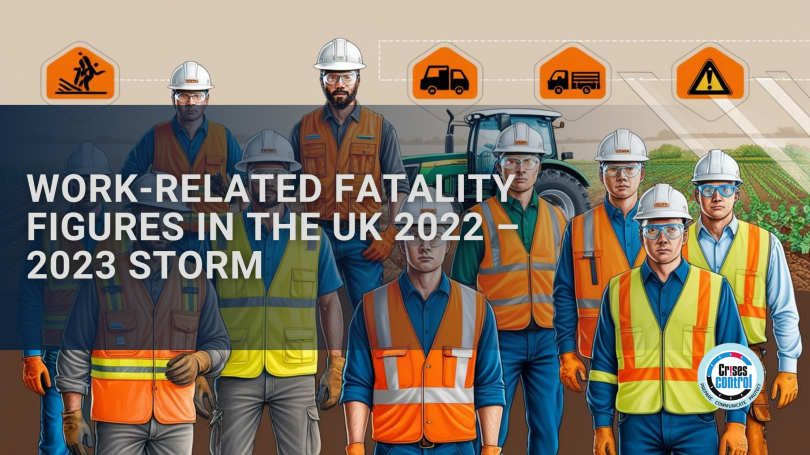Work-related fatalities are not just numbers; they represent lives tragically cut short and families forever affected. According to the latest figures released by the Health and Safety Executive (HSE), a total of 135 workers lost their lives due to work-related incidents in the UK, during the 2022-2023 period. This stark reality underscores the pressing need for comprehensive measures to prevent and mitigate such incidents.
The grim reality of work-related fatalities reminds us that proactive incident management is not just about compliance – it’s about preserving lives and ensuring the well-being of workers.
Diving into the Details
The industries most deeply affected by these incidents provide insights into areas where improved incident management strategies are urgently required. Construction emerged as the sector with the highest fatalities, recording 45 deaths. Agriculture, forestry, and fishing followed closely with 21 deaths, while manufacturing and transportation and storage each recorded 15 fatalities.
However, it’s not just about numbers – it’s about rates. Agriculture, forestry, and fishing boast the highest rate of fatal injuries per 100,000 workers across all major industrial sectors, underscoring the unique challenges faced by this industry. The waste and recycling sector also stood out for its high fatality rate.
Crucial Insights
Understanding the primary causes of these fatal incidents provides a roadmap for targeted prevention efforts. Falls from height, accounting for 40 fatalities, remain a significant challenge. Being struck by a moving object was responsible for 29 deaths, while being struck by a moving vehicle claimed the lives of 20 workers. These figures serve as a reminder of the importance of effective measures to prevent falls, manage moving objects, and enhance vehicle safety within workplaces.
Additionally, understanding the industries with the highest fatalities can guide targeted efforts towards reducing risks in these sectors. Construction, agriculture, forestry, fishing, manufacturing, and transportation are among the industries that top the list. This underscores the need for sector-specific approaches to incident management, as each industry presents unique challenges and vulnerabilities. By adopting technology-driven solutions and leveraging insights from past incidents, businesses can develop effective plans that mitigate risks and protect their workforce.
Elevating Incident Management with Technology
The magnitude of these figures underscores the critical importance of effective incident management in workplaces. This is where modern technology steps in to revolutionise how businesses handle and respond to incidents. Incident management tools have become indispensable in streamlining processes, enhancing communication, and ultimately saving lives. These tools offer a comprehensive digital infrastructure that enables swift communication, real-time data analysis, and informed decision-making.
Moreover, incident management tools empower organisations to transition from a reactive approach to a proactive one. They enable pre-emptive identification of potential risks, allowing businesses to take preventative measures before incidents escalate. This shift from reaction to prevention is pivotal in reducing the occurrence of work-related fatalities and injuries. By leveraging incident management technology, organisations can not only comply with regulations but also foster a culture of safety that prioritises the well-being of their workforce.
Conclusion
The insights from the work-related fatality figures of 2022-2023 present a unique opportunity for organisations to reevaluate their safety strategies. Incorporating incident management tools like Crises Control can bridge gaps in communication, ensure prompt responses, and aid in preventing potential incidents. By leveraging real-time alerts, streamlined communication, and automated response protocols, businesses can foster a safer and more resilient environment for their workforce.
Our platform offers a comprehensive suite of tools designed to enhance workplace safety, from rapid alerts to streamlined communication.
Request a free live demo to learn how Crises Control can revolutionise your incident management approach, and also enable rapid, emergency communications throughout your organisation within a few days.
Protect lives and your business with proactive measures today.







